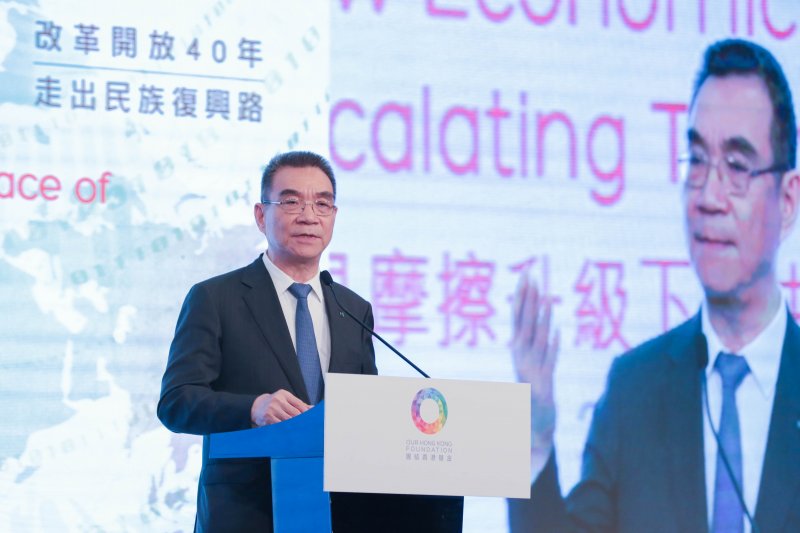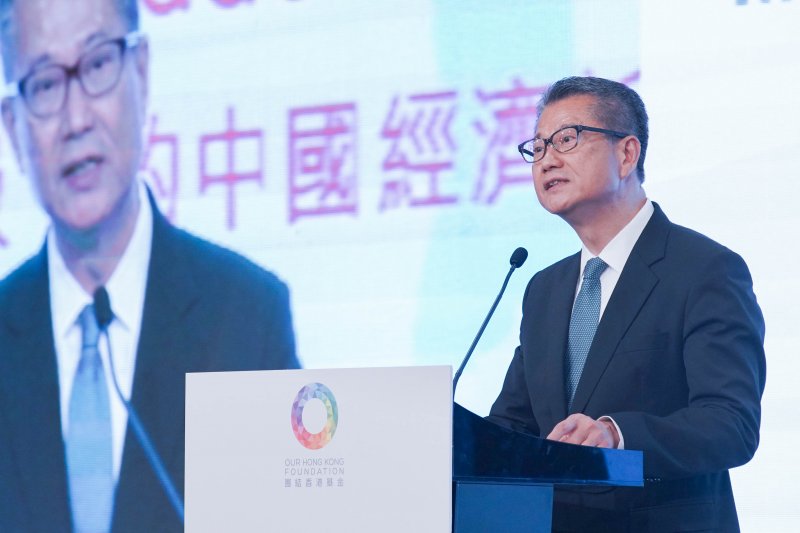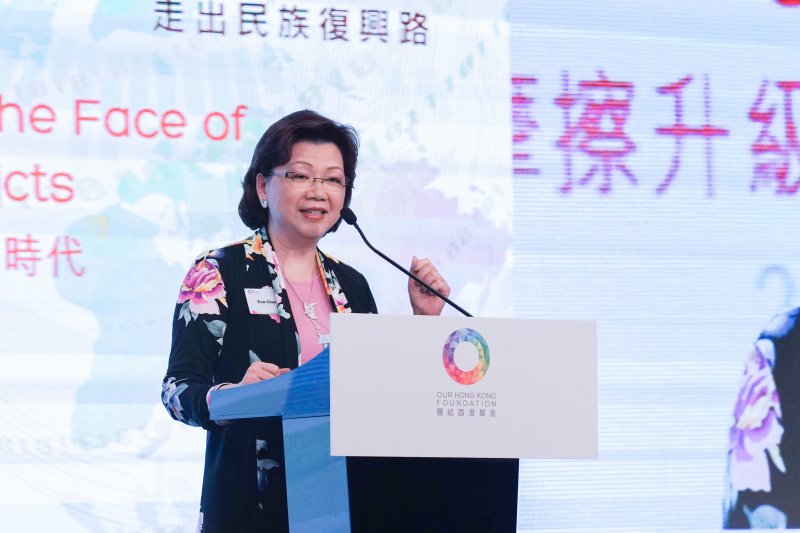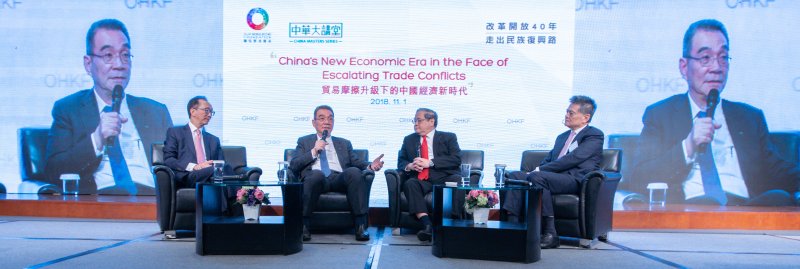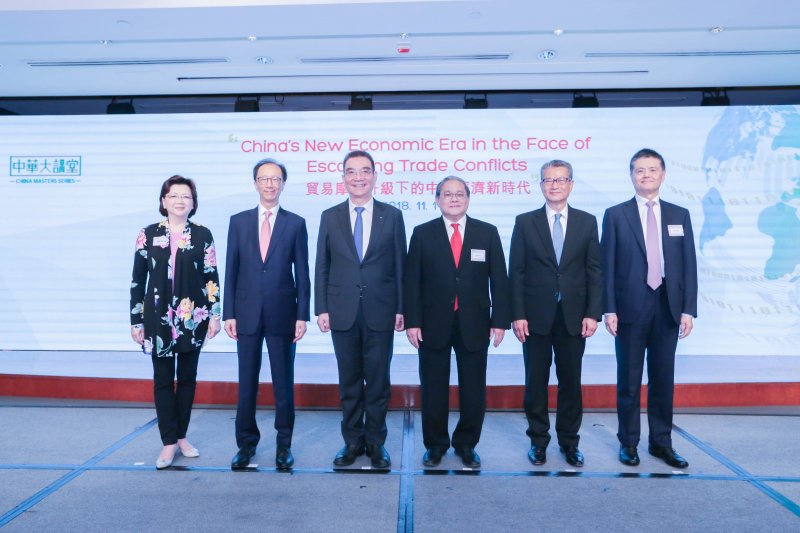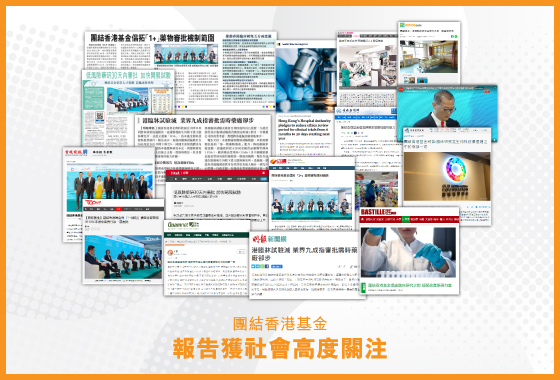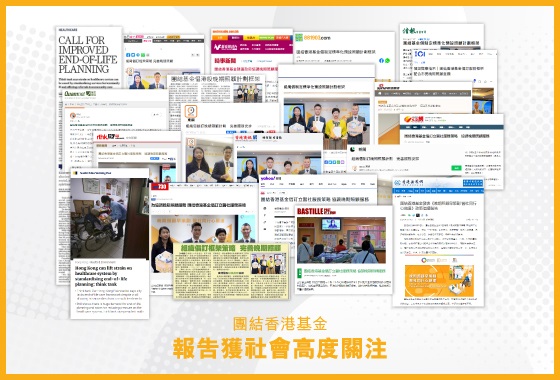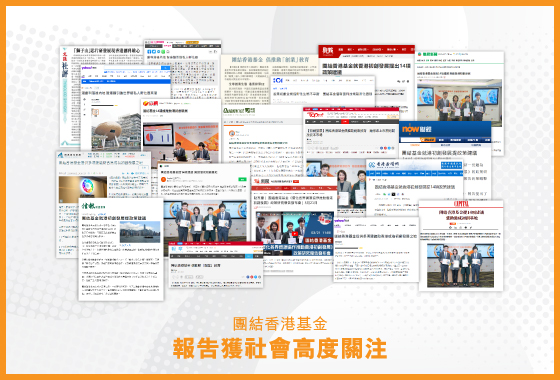Prof Justin Lin Yifu at an OHKF Seminar: Starting a Trade War Will Not Help the US Narrow Its Trade Deficit
Prof Justin Lin Yifu at an OHKF Seminar:
Starting a Trade War Will Not Help the US Narrow Its Trade Deficit
(1 November 2018, Hong Kong) – US tariffs on Chinese products would only lead to a shift of manufacturing from China to countries with higher labour costs that would in turn aggravate the US trade deficit and result in a surge in product prices for US consumers, according to Prof Justin Lin Yifu, Dean of the Institute of New Structural Economics at Peking University, at the “China Masters Series” forum organised by Our Hong Kong Foundation (OHKF) .
In Prof Lin's view, who is also former Senior Vice President and Chief Economist at the World Bank, China is expected to maintain a medium-to-high growth rate of around 6.5% since it is a country with significant potentials for innovation and industrial upgrading. China’s sizable domestic market also provides space for further economic development.
in his talk at the OHKF “China Masters Series” forum, titled “China’s New Economic Era in the Face of Escalating Trade Conflicts”, Prof Lin revealed the impact of the current Sino-US trade war and how it would affect China’s economic prospect. More than 400 people – diplomats, senior business executives, scholars and political leaders of Hong Kong – attended the event, at which Hong Kong’s Financial Secretary Mr Paul Chan Mo-po was also present to deliver an opening address.
A trade war will not narrow the US trade deficit
The draconian tariffs imposed by the US on US$250 billion worth of Chinese imports have resulted in a trade war of unprecedented scale between the world’s two largest economies. Prof Lin pointed out that the Sino-US trade imbalance is in fact a result of “the difference in comparative advantages across economies” and is “exacerbated by production-sharing across borders” in East Asia – a region that has been a labour-intensive production hub providing the US market with affordable consumer goods since the 1950s.
Beginning in the 1980s, labour-intensive production lines began to be relocated from Asia’s “Four Tigers” to China. As a consequence, China has gradually become the counterparty of US’s trade deficit. However, the US trade deficit with East Asia as a whole – including China – has fallen from over 100% in the 1980s to roughly 60% in contemporary days, thus suggesting that China is not the cause of the expanding US foreign trade deficit.
Prof Lin noted that the average wage in China’s manufacturing sector has risen rapidly in recent years, reaching US$9,165 per annum in 2015 – more than two times higher than that of Thailand and more than triple the figures in other Southeast Asian countries. He believed that, as China’s economy continues to develop itself, its labour-intensive manufacturing will gradually shift to other regions where costs are lower – such as Vietnam, Cambodia, Bangladesh, India, Indonesia as well as countries in Africa. Despite their low wage levels, however, these countries commonly lack a mature supply chain, and their overall manufacturing costs might therefore be even higher than that in China
Prof Lin stressed that the Trump administration is wrong to label China as the root cause of US’s own trade deficit. Imposing hefty tariffs on Chinese products will neither narrow the deficit nor create jobs in the US. On the contrary, it will only accelerate the shift of manufacturing from China to other countries, thereby widening the US trade deficit against those countries and driving up the cost of foreign-made products for US consumers.
Bilateral trade, as Prof Lin suggested, should be mutually beneficial. He expected that the US and Chinese governments should resolve the current trade disputes through dialogue and negotiation.
China is capable of sustaining medium-to-high-speed growth
Prof Lin further stated that China has drawn up a comprehensive blueprint to put the country on a path of continuous reform towards a “New Economic Era” as indicated in the Report of the 19th CPC National Congress last year. Since the beginning of reform in 1978, China has placed a high priority on stability, taking a steady but progressive approach while maintaining many of the interventionist policies in its earlier era of planned economy in order to protect the capital-intensive, state-owned enterprises (SOEs). With the accumulation of capital among SOEs and shifting comparative advantages, China should allow the market to play a “decisive role” in resource allocation by gradually eliminating state subsidies and protections as well as by promoting institutional reforms.
China’s GDP has grown at an annual rate of 9.5% over the last 40 years, which is what Prof Lin referred to as an “unprecedented miracle in human history”. China, in terms of the gaps in per-capita income, industrial development and current technology between itself and the developed economies, is comparable to Japan in the 1950s, Singapore and Hong Kong in the 1960s as well as Taiwan and South Korea in the 1970s. By leveraging these gaps, these said East Asian economies played the role of “latecomers” to their advantage and achieved an average annual growth rate of 8-9% for over ten years consecutively. Likewise, China also has the potentials to achieve an 8% annual economic growth in the coming future. With a large domestic market and substantial space for industrial upgrading and consumption growth, China is expected to maintain a medium-to-high growth rate of 6.5% regardless of the global market environment, as long as the country continues to deepen its economic reform.
Following his keynote speech, Prof Lin was joined by Mr Antony Leung, Group Chairman & CEO of Nan Fung Group, and Dr Patrick Wang, Chairman and Chief Executive of Johnson Electric Group, in a panel hosted by Dr Victor Fung, OHKF Vice Chairman, for a further discussion on the issues of Sino-US trade and global economy.
Dr. Victor Fung noted that the trade war will largely impact the global supply chain by the country of origin in relation to the final assembly process of products, and China will remain an important part of the global supply chain. Over the short-term, Hong Kong can adapt to the challenge by continuing to help orchestrate the global supply chain as an international trading centre.
Antony Leung commented that to prepare for a long-term conflict, China will adopt policy to promote consumption and will need more infrastructure to facilitate the flow of people and goods. Hong Kong can help China in the development of technology and play the role of attracting overseas talent.
Patrick Wang pointed out that manufacturers will have a tough time in the near term as a result of the trade war, but it will also provide China with an opportunity to upgrade its industry as China is quick to integrate technology. Shenzhen, for instance, has been a breeding and nurturing ground for Chinese start-ups.
